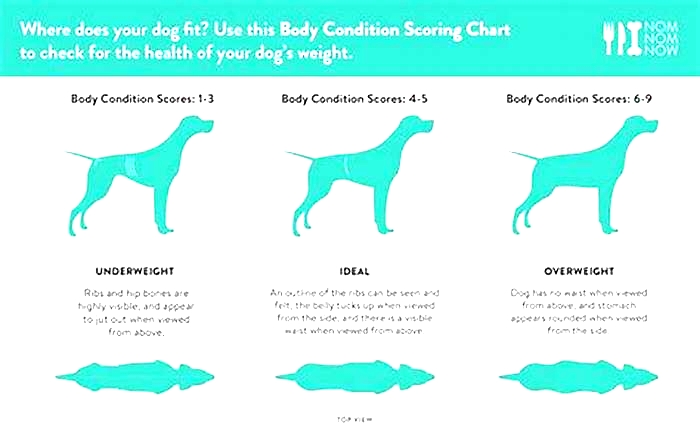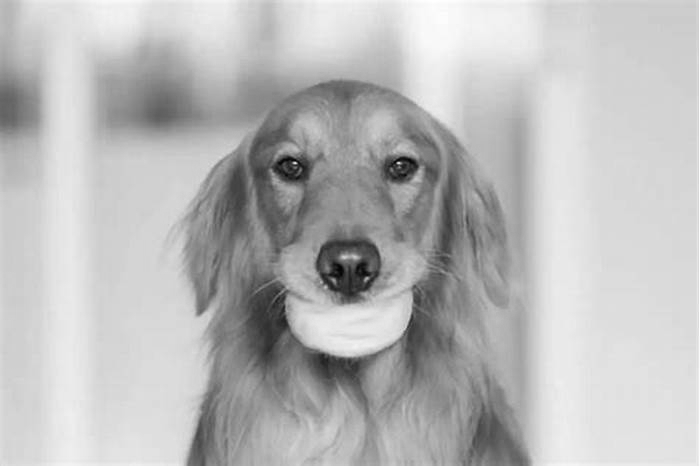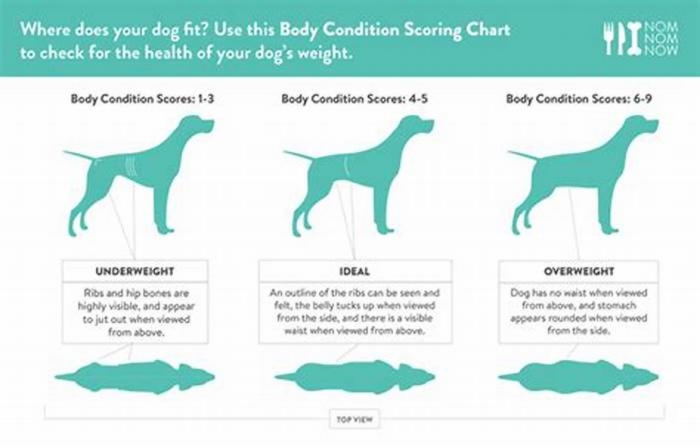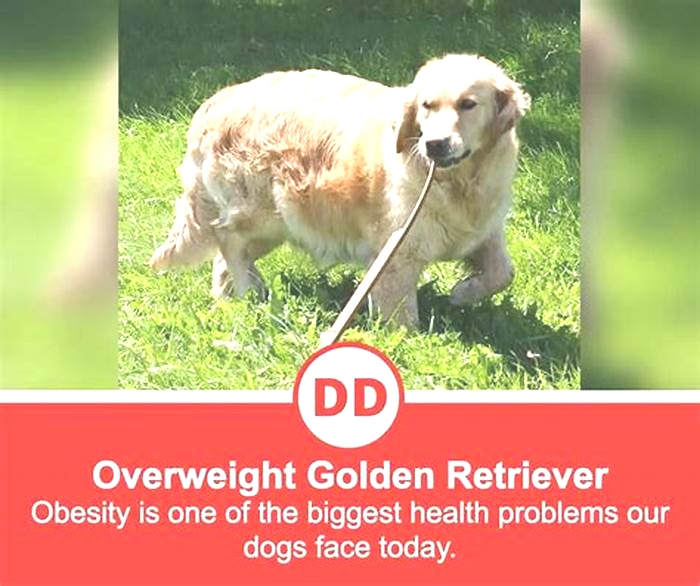How much is overweight for a golden retriever

Overweight Golden Retrievers: Tips for a Healthier Lifestyle
If youre the proud owner of a golden retriever, you know that these dogs are loyal, friendly, and always up for a good time. However, as with any breed, its important to keep an eye on your pups health and wellbeing. One common issue that golden retrievers face is obesity. Just like humans, carrying extra weight can lead to a host of health problems for dogs, so its important to understand the causes, symptoms, and treatment options for overweight golden retrievers.

Canine obesity is a growing problem in the United States, and golden retrievers are no exception. According to a study by the Association for Pet Obesity Prevention, over half of all dogs in the U.S. are overweight or obese. This excess weight can lead to a variety of health problems, including joint pain, heart disease, and diabetes. As a golden retriever owner, its up to you to monitor your dogs weight and take steps to prevent obesity before it becomes a serious issue.
To help you keep your golden retriever healthy and happy, weve put together a comprehensive guide to understanding and managing canine obesity. In this article, youll learn about the physical characteristics of overweight golden retrievers, as well as the best nutrition and exercise strategies to help your pup lose weight and stay healthy. Youll also learn about the role of veterinary care in managing obesity, and find answers to some of the most frequently asked questions about overweight golden retrievers.
Key Takeaways
- Canine obesity is a growing problem in the U.S., and golden retrievers are no exception.
- Overweight golden retrievers are at risk for a variety of health problems, including joint pain and heart disease.
- By understanding the causes, symptoms, and treatment options for canine obesity, you can help your golden retriever stay healthy and happy.
Understanding Canine Obesity
https://www.youtube.com/watch?v=kHmupA4Sj_Y&embed=true
If you have a Golden Retriever, you probably know how much they love to eat. However, overfeeding your dog can lead to obesity, which is a serious condition that can lower their quality of life and shave years off their life expectancy. In this section, well explore the causes of obesity and the health risks associated with it.
Causes of Obesity
There are several factors that can contribute to canine obesity. Some of the most common causes include overfeeding, lack of exercise, and genetics. If your dog is eating more calories than they are burning, they will gain weight. This is why its important to monitor your dogs food intake and make sure they are getting enough exercise.
Some medical conditions can also contribute to weight gain. For example, hypothyroidism can slow down your dogs metabolism, making it harder for them to burn calories. Infections and illnesses can also cause weight gain, so its important to take your dog to the vet if you notice any changes in their weight.
Health Risks of Obesity
Obesity can lead to a number of health problems in dogs. For example, obese dogs are more likely to develop diabetes, heart disease, and high blood pressure. They are also at a higher risk for certain types of cancer.
Excess weight can also put a strain on your dogs joints, leading to arthritis and other joint problems. This can cause pain and discomfort, making it harder for your dog to move around. Respiratory issues are also more common in obese dogs, as the extra weight can put pressure on their lungs.
In addition to the physical health risks, obesity can also lead to stress and other behavioral problems. If your dog is overweight, they may be less active and less interested in playing or going for walks. This can lead to boredom and other behavioral issues.
In conclusion, canine obesity is a serious condition that can have a significant impact on your dogs health and quality of life. By understanding the causes of obesity and the health risks associated with it, you can take steps to prevent your dog from becoming overweight.
Physical Characteristics of Overweight Golden Retrievers
https://www.youtube.com/watch?v=1ErRSnbQalU&embed=true
Golden Retrievers are a medium to large breed, and they are known for their friendly and playful nature. However, if your Golden Retriever is overweight, it can lead to health problems such as joint pain, hip dysplasia, and other issues. In this section, we will discuss the physical characteristics of overweight Golden Retrievers and how to identify them.
Identifying Overweight in Males
As per the breed standard set by the AKC, a fully-grown male Golden Retriever should weigh between 65 to 75 pounds. If your male Golden Retriever weighs more than this, he may be overweight. You can identify overweight in males by sight and feel. When you look at your dog from above, you should be able to see his waistline. If your dogs tummy is round and bulging, it may be a sign of overweight. When you feel your dogs ribs, you should be able to feel them easily without pressing too hard. If you cannot feel your dogs ribs, it may be a sign of overweight.
Identifying Overweight in Females
A fully-grown female Golden Retriever should weigh between 55 to 65 pounds as per the AKC breed standard. If your female Golden Retriever weighs more than this, she may be overweight. You can identify overweight in females by sight and feel as well. When you look at your dog from above, you should be able to see her waistline. If your dogs tummy is round and bulging, it may be a sign of overweight. When you feel your dogs ribs, you should be able to feel them easily without pressing too hard. If you cannot feel your dogs ribs, it may be a sign of overweight.
Overweight Golden Retrievers have a larger size, which can put extra pressure on their joints and bones. This can lead to joint pain and hip dysplasia. Therefore, it is essential to keep your Golden Retriever at a healthy weight to avoid these health issues.
In summary, identifying overweight in Golden Retrievers is crucial to maintain their health and well-being. You can identify overweight in males and females by sight and feel. If you notice that your Golden Retriever is overweight, it is essential to take steps to help them lose weight and maintain a healthy weight.
Nutrition and Diet for Overweight Golden Retrievers
https://www.youtube.com/watch?v=qxxnseWFsZ4&embed=true
If your Golden Retriever is overweight, its important to take action to help them achieve a healthy weight. One of the most effective ways to do this is by adjusting their diet. In this section, well cover some healthy eating habits and recommended treats for overweight Golden Retrievers.
Healthy Eating Habits
When it comes to nutrition and diet for overweight Golden Retrievers, its important to focus on healthy eating habits. This means providing your dog with a balanced diet that is low in calories and high in nutrients. You should also pay attention to portion sizes and avoid overfeeding your dog.
One way to ensure your dog is getting the nutrients they need is by feeding them high-quality dog food. Look for a dog food that is specifically designed for overweight dogs and is low in fillers and table scraps. You should also avoid dog food that contains too many calories or unhealthy ingredients.
In addition to feeding your dog a balanced diet, its important to limit treats and snacks. Treats should be low in calories and given in moderation. You can also try using healthy treats, such as fruits and vegetables, to reward your dog.
Recommended Treats
When it comes to treats for overweight Golden Retrievers, its important to choose wisely. You should avoid treats that are high in calories or contain unhealthy ingredients. Instead, look for treats that are low in calories and provide your dog with added nutrients.
Some healthy treats for overweight Golden Retrievers include:
- Carrots
- Green beans
- Apples (without the seeds)
- Blueberries
- Sweet potatoes
These treats are low in calories and provide your dog with added nutrients. However, its important to remember that treats should be given in moderation and should not make up a large portion of your dogs calorie intake.
By following these tips for nutrition and diet for overweight Golden Retrievers, you can help your dog achieve a healthy weight and maintain good health.
Exercise and Weight Loss for Golden Retrievers
https://www.youtube.com/watch?v=BAEMBU8T8N0&embed=true
If your Golden Retriever is overweight, exercise can help them lose weight and improve their overall health. In this section, well discuss some effective exercises and the importance of regular exercise.
Effective Exercises
There are many exercises that can help your Golden Retriever lose weight. Walking is an excellent exercise that can be done daily. Start with short walks, and gradually increase the distance and duration as your dog gets used to it. Swimming is another low-impact exercise that is great for overweight dogs. It is easy on their joints and can be a fun way to exercise.
Playing fetch is also a great way to get your dog moving. You can use a ball, frisbee, or any other toy that your dog loves to chase. This will help increase their physical activity and burn calories.
Importance of Regular Exercise
Regular exercise is crucial for weight loss in Golden Retrievers. It not only helps them lose weight but also improves their overall health. Exercise helps to strengthen muscles, improve cardiovascular health, and reduce the risk of chronic diseases.
Increasing exercise can also help your dog feel happier and more energetic. It can reduce stress and anxiety and improve their mental health. A sedentary lifestyle can lead to boredom, which can result in destructive behavior. Regular exercise can help prevent this and keep your dog happy and healthy.
In conclusion, exercise is an essential part of weight loss for Golden Retrievers. By incorporating effective exercises and regular physical activity into your dogs routine, you can help them lose weight, improve their overall health, and increase their happiness.
Role of Veterinary Care in Managing Obesity
https://www.youtube.com/watch?v=Uco-I949gE8&embed=true
As a responsible pet owner, it is important to ensure that your furry friend is at their ideal weight. Overweight or obese American Golden Retrievers are at risk of developing health problems such as cardiovascular disease, diabetes mellitus, liver disease, respiratory disease, neoplasia, and osteoarthritis. By working with your veterinarian, you can help your pet maintain a healthy weight and live a longer, happier life.
When you take your pet to the veterinarian, they will assess their weight and body condition score to determine if they are at an ideal weight. If your pet is overweight or obese, your veterinarian will work with you to develop a weight management plan. This plan may include changes to your pets diet, exercise routine, and lifestyle.
Neutered or spayed pets may be more prone to weight gain due to changes in their metabolism and activity level. Your veterinarian can help you determine if your pets neutering or spaying is contributing to their excess weight. They may also recommend additional blood work to assess your pets immune system and overall health.
To help your pet achieve and maintain their ideal weight, it is important to be patient and consistent with their weight management plan. You may need to adjust their diet and exercise routine over time as they lose weight. It is also important to involve all family members in your pets weight management plan to ensure that everyone is on board with making the necessary lifestyle changes.
The Association for Pet Obesity Prevention and the Morris Animal Foundation are great resources for pet owners looking to learn more about pet obesity and weight management. By working with your veterinarian and being a responsible pet owner, you can help your furry friend live a happy, healthy life.
Frequently Asked Questions
https://www.youtube.com/watch?v=TWC9eT8Ou6E&embed=true
What is a healthy weight for a Golden Retriever?
A healthy weight for a Golden Retriever is between 60 and 75 pounds, with some of the very smallest and largest outliers ranging as low as 55 pounds right up to 90 pounds. Male dogs are 56-61cms (22-24 ins) and female dogs are 51-56cms (20-22 ins) at the withers.
How can I help my overweight Golden Retriever lose weight?
The best way to help your overweight Golden Retriever lose weight is to provide them with a balanced diet tailored to their specific needs and controlled portion sizes. You can also increase their exercise routine and playtime to help them burn more calories. However, it is important to consult with a veterinarian before making any significant changes to your dogs diet or exercise routine.
What are some signs that my Golden Retriever is overweight?
Some signs that your Golden Retriever may be overweight include difficulty feeling their ribs, a lack of an obvious taper in their waist, and protruding fat around their hips and tail. Additionally, they may have difficulty breathing, walking, or playing due to their excess weight.
Is it common for Golden Retrievers to become overweight?
Yes, Golden Retrievers are prone to becoming overweight due to their love of food and lack of portion control. Additionally, they have a slower metabolism than some other breeds, which can make it more challenging for them to maintain a healthy weight.
What is the recommended diet for an overweight Golden Retriever?
The recommended diet for an overweight Golden Retriever is a low-calorie, high-fiber diet that is tailored to their specific nutritional needs. It is important to consult with a veterinarian before making any significant changes to your dogs diet.
Are there any health risks associated with having an overweight Golden Retriever?
Yes, there are several health risks associated with having an overweight Golden Retriever, including joint problems, heart disease, diabetes, and a shorter lifespan. It is important to help your Golden Retriever maintain a healthy weight to prevent these health issues from arising.









